
Scientists have identified about 5,000 different mineral species. With so many minerals, it’s not surprising for several to have closely matching physical and chemical similarities. Scientists have established a grouping system for species with closely matching properties to provide for ease of study. Some groups only have three species, the minimum required. Other groups like the mica and autunite groups have more than 40 members.
The zeolite group is unusual, as it is considered to be two separate groups. Zeolites in the main group have all the required properties to be in that group. Other zeolites have the same properties, save for one or two that are different enough to be treated separately. Combined, the two groups include more than 75 members. Zeolites form when hot volcanic rocks react with groundwaters. The more prolific sources of zeolite minerals are in areas of vast volcanism. They also occur in ore veins and sedimentary rocks.
There is also some confusion about zeolite minerals. Collectors often assume any mineral found in a zeolite environment is a zeolite, but it’s not so. Such beauties as cavansite and apophyllite are two species mistakenly thought to be zeolites. Because of this, the second group of non-zeolites is often treated with the zeolites. To help distinguish between them, we’ll offer two companion articles, “Zeolites” and “Non-Zeolite” in future issues of Rock & Gem.
In a brief article like this, it would be a physical impossibility to describe every one of the 75 or so known zeolites. Some are rare and seldom seen. Others are known only to the micro-mounter using special equipment. In this article, we’ll treat zeolites most often seen at shows and are enjoyed by the average collector.
DEFINING ASPECTS OF ZEOLITES
Bu hikaye Rock&Gem Magazine dergisinin April 2020 sayısından alınmıştır.
Start your 7-day Magzter GOLD free trial to access thousands of curated premium stories, and 9,000+ magazines and newspapers.
Already a subscriber ? Giriş Yap
Bu hikaye Rock&Gem Magazine dergisinin April 2020 sayısından alınmıştır.
Start your 7-day Magzter GOLD free trial to access thousands of curated premium stories, and 9,000+ magazines and newspapers.
Already a subscriber? Giriş Yap
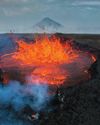
THE BRIGHT SIDE OF VOLCANIC ROCK
As a mineral resource, volcanic rock is decidedly short on glamour.
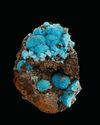
The Other Copper Minerals
12 Lesser-known Collectible Species

MINERAL COLLECTING -AND ROCK & GEM
Evolving Together FOR 54 YEARS
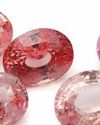
Gemstone Trends
A Look Back at 2024 & What to Expect in 2025
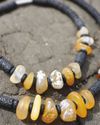
How to Make a GEM BEAD NECKLACE
No Lapidary Experience Needed!
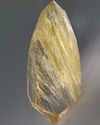
Framing Nature's Art
Faceting Rutilated Quartz for Beginners
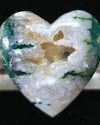
BEDAZZLED BLUE SEAM AGATE
More than several centuries ago, mining was the profession most often seen as befitting of men.
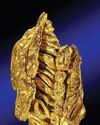
ROCK & GEM FIELD GUIDE:
Spinel is a captivating gemstone with a rich history of being mistaken for gems like ruby and sapphire.
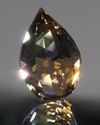
SNAKE SCALE DROP 1.5:1
This Faceting Focus is revisiting the briolette gemstone design because of its popularity with independent and hobby gemstone faceters.

STONE CHIC
How Earth-Inspired Decor Brings Comfort to our Home